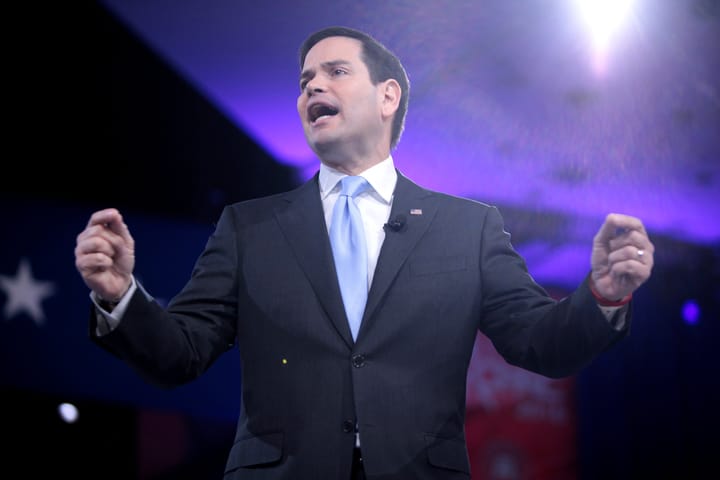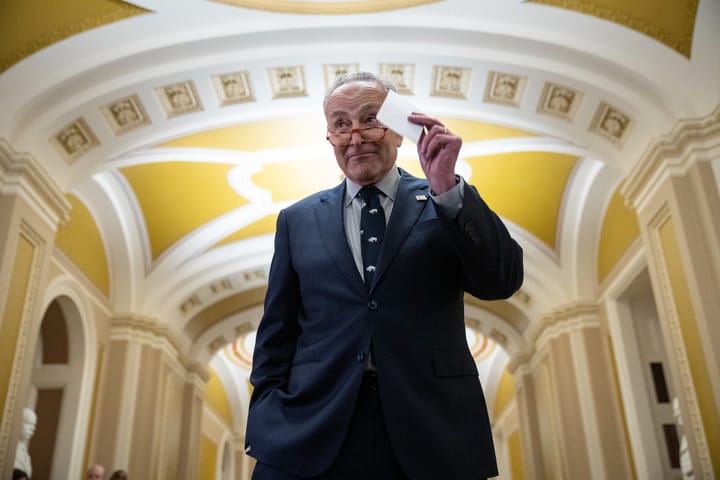Trump campaigned on demolishing “the deep state” and promoting free speech, but his choice to lead the State Department is on the board of a federally-funded group that acts as an extension of the U.S. intelligence agencies and works to monitor social media around the world.
Since 2018, Secretary of State nominee Sen. Marco Rubio (R-Fla.) has been a board member of the International Republican Institute (IRI), a federally-funded nonprofit organization that epitomizes the deep state. The IRI is the Republican Party-affiliated arm of the National Endowment for Democracy, a semiautonomous organization that was created by the Reagan administration to intervene in foreign affairs without the stigma of the Central Intelligence Agency. It is mostly funded by the U.S. government through the State Department and U.S. Agency for International Development, but it also receives donations from companies including Chevron, Meta, Citigroup, and AT&T.
The IRI, which describes its mission as “advancing democracy and freedom” abroad, works to strengthen establishment factions and counter populist movements. It has been active for decades in countries like Venezuela, Ukraine, and Brazil on what it calls “capacity building” initiatives, mostly to strengthen anti-socialist political factions favored by the U.S. government, but it has more recently shifted more of its focus to patrolling the internet for disinformation and helping to expand programs to address it in foreign countries.
“IRI congratulates Senator Rubio on his historic nomination as the 72nd U.S. Secretary of State,” the organization said in a statement. “Throughout his service in the Senate, he has been one of America’s foremost advocates for freedom and democracy around the world, and he has played an invaluable role as a member of IRI’s board of directors.”
Over the past decade-plus, IRI has attracted pushback from a number of independent media organizations and political watchdog groups. In 2012, economist Mark Weisbrot looked skeptically in a Guardian op-ed at IRI’s record abroad, in countries like Brazil and Honduras, where it promoted regime change efforts under the banner of democracy.
According to its playbook for countering online misinformation, IRI’s approach involves mapping information ecosystems to identify manipulation narratives, then responding by alerting election management bodies and reporting to social media companies. The playbook recommends that those working to counter online disinformation collaborate with social media companies’ content moderators and platform content policy teams, and that its Design 4 Democracy Coalition can put them in touch with the best point of contact at each company.
Unlock this post with a free trial>>
Design 4 Democracy is a partnership between IRI, civil society groups, and tech companies including Meta, Google and X that are “interested in protecting the integrity and quality of online political information.” The program’s website says it “has established a reciprocal flow of information between its global partners and tech companies,” including access to “dedicated escalation channels.”



